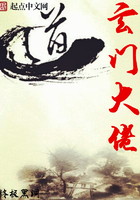The Republican convention nominated for my successor as secretary of state General Francis C. Barlow, a very brilliant soldier in the Civil War. The Democratic convention adopted a patriotic platform of advanced and progressive views, and nominated at the head of their ticket for secretary of state General Henry W. Slocum.
General Slocum had been a corps commander in General Sherman's army, and came out of the war among the first in reputation and achievement of the great commanders. It was a master stroke on the part of the Democratic leaders to place him at the head of their ticket. He was the greatest soldier of our State and very popular with the people. In addition to being a great commander, he had a charming personality, which fitted him for success in public life.
The Democrats also on the same ticket nominated for attorney-general John Van Buren. He was a son of President Van Buren and a man of genius. Although he was very erratic, his ability was so great that when serious he captured not only the attention but the judgment of people. He was an eloquent speaker and had a faculty of entrancing the crowd with his wit and of characterization of his opponent which was fatal. I have seen crowds, when he was elaborately explaining details necessary for the vindication of his position, or that of his party which did not interest them, to remain with close attention, hoping for what was certain to come, namely, one of those sallies of wit, which made a speech of Van Buren a memorable thing to have listened to.
Van Buren was noted for a reckless disregard of the confidences of private conversation. Once I was with him on the train for several hours, and in the intimacy which exists among political opponents who know and trust each other we exchanged views in regard to public measures and especially public men. I was very indiscreet in talking with him in my criticism of the leaders of my own party, and he equally frank and delightful in flaying alive the leaders of his party, especially Governor Seymour.
A few days afterwards he made a speech in which he detailed what I had said, causing me the greatest embarrassment and trouble.
In retaliation I wrote a letter to the public, stating what he had said about Governor Seymour. The Democratic ticket was beaten by fifteen thousand in a very heavy vote, and Van Buren always charged it to the resentment of Governor Seymour and his friends.
In our country public life is a most uncertain career for a young man. Its duties and activities remove him from his profession or business and impose habits of work and thought which unfit him for ordinary pursuits, especially if he remains long in public service. With a change of administration or of party popularity, he may be at any time dropped and left hopelessly stranded.
On the other hand, if his party is in power he has in it a position of influence and popularity. He has a host of friends, with many people dependent upon him for their own places, and it is no easy thing for him to retire.
When I had decided not to remain any longer in public life and return home, the convention of my old district, which I had represented in the legislature, renominated me for the old position with such earnestness and affection that it was very difficult to refuse and to persuade them that it was absolutely necessary for me to resume actively my profession.
Our village of Peekskill, which has since grown into the largest village in the State, with many manufacturing and other interests, was then comparatively small. A large number of people gathered at the post-office every morning. On one occasion when I arrived I found them studying a large envelope addressed to me, which the postmaster had passed around. It was a letter from William H. Seward, secretary of state, announcing that the president had appointed me United States minister to Japan, and that the appointment had been sent to the Senate and confirmed by that body, and directing that I appear at the earliest possible moment at his office to receive instructions and go to my post. A few days afterwards I received a beautiful letter from Henry J. Raymond, then in Congress, urging my acceptance.
On arriving in Washington I went to see Mr. Seward, who said to me:
"I have special reasons for securing your appointment from the president. He is rewarding friends of his by putting them in diplomatic positions for which they are wholly unfit. I regard the opening of Japan to commerce and our relations to that new and promising country so important, that I asked the privilege to select one whom I thought fitted for the position. Your youth, familiarity with public life, and ability seem to me ideal for this position, and I have no doubt you will accept."I stated to him how necessary it was that after long neglect in public life of my private affairs I should return to my profession, if I was to make a career, but Mr. Seward brushed that aside by reciting his own sucess, notwithstanding his long service in our State and in Washington. "However," he continued, "I feared that this might be your attitude, so I have made an appointment for you to see Mr. Burlingame, who has been our minister to China, and is now here at the head of a mission from China to the different nations of the world."Anson Burlingame's career had been most picturesque and had attracted the attention of not only the United States but of Europe. As a member of the House of Representatives he had accepted the challenge of a "fire-eater," who had sent it under the general view that no Northern man would fight. As minister to China he had so gained the confidence of the Chinese Government that he persuaded them to open diplomatic relations with the Western world, and at their request he had resigned his position from the United States and accepted the place of ambassador to the great powers, and was at the head of a large delegation, composed of the most important, influential, and representative mandarins of the old empire.















